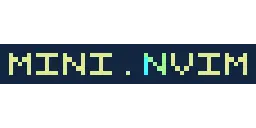The whole thing is weird and the CEO especially so, and not weird in a good way: https://d-shoot.net/kagi.html
https://www.partykit.io/ sort of? maybe?
Gosh darn it I only just onboarded to Omnivore a few months ago Now I guess I need to find a new place to store bookmarks
One example I can think of is Widevine DRM, which is owned by Google and is closed source: https://en.wikipedia.org/wiki/Widevine
Google currently allows Mozilla (and others) to distribute this within Firefox, allowing Netflix, Disney+, and various other video streaming services to work within Firefox without any technical work performed by the user
I don't believe Google would ever willingly take this away from Mozilla, but it's entirely possible that the movie and music industries pressure Google to reduce access to Widevine (the same way they pressured Netflix into adopting DRM)
For disappearing messages to work, your conversation partner has to promise they won't take photos of their screen, and they have to promise to use an app that actually implements the feature instead of just pretending to, and the app developers have to promise to have implemented the code to delete a message when the service says it should
Is there actually a cryptographically-sound and physically-complete method for ensuring that a message is only legible for a temporary duration once it leaves your own device and is delivered to someone elses?
Hmmm, is CloudFlare known for being a bad actor in terms of privacy?
Setting that aside, no matter what you pick, you'll be exposing your IP address, from which your ISP and/or general location may be derived
If you don't trust CloudFlare with that information then you basically cannot trust anyone else, so maybe you'd need to run your own service and ping that instead now that you're in a situation where you can only trust yourself 🤷
The other issue that comes to mind is that you're only testing reachability to one address, which means you could get a false negative where that address stops working but the rest of the internet is actually fine
Without being specific, I'd try to get something with firmware updates available on LVFS: https://fwupd.org/
And you might want to check for distribution specific notes on that model e.g.
- https://ubuntu.com/certified/laptops
- https://wiki.archlinux.org/title/Category:Laptops
- https://linux-on-laptops.com/
- https://www.linlap.com/doku.php
If Wayland is more important to you than AI/ML/LLMs then you probably don't want anything with an nVidia GPU
We need a verified check-mark for true wayland users :P
I did actually do this already, separate from working on this issue, but can confirm the intermittent problems with the combination of wpa_supplicant and systemd-networkd
My desktop PC is the only machine in the house having Wi-Fi connectivity issues (connects fine, but drops out randomly after a few minutes or sometimes a few hours)
I think wpa_supplicant is getting confused and thinks signal strength is poor (I have a Netgear mesh, but this seems increasingly common, so it's weird for that to be the issue)
I did pick up a TP-Link USB Wi-Fi adapter, but can reproduce the same connectivity issues
The fix was switching away from wpa_supplicant in favour of iwd, which seems rock solid in comparison
I'm sure there's a way to fix wpa_supplicant, but it's man pages only seem to list the options without actually describing what they do, which seems sort of poor considering how old the project is 🤷
I'm not an expert, but my understanding of the Global Shortcuts portal is that it's very much designed for the push-to-talk use case where an app is not focused but still receives button events for exactly the keys its interested in and no other keys: I think this would cause problems if an app requested every key (e.g. if the request was approved then no keys would work in every other app)
It'll be interesting to see how the remaining compatibility/accessibility issues are tackled, either in portals or in wayland protocols
There's a portal for Global Shortcuts: https://flatpak.github.io/xdg-desktop-portal/docs/doc-org.freedesktop.portal.GlobalShortcuts.html
KDE and Hyprland already implement it, and COSMIC seems likely to
On the app side, if we can get the major toolkits to adopt it, then hopefully that covers most actively-maintained apps (but it's unlikely to cover legacy apps): https://github.com/electron/electron/issues/38288
Gosh, I'm so fascinated by the concept of removing/hiding the tabs implementation from every app and relying 100% on the window manager to provide this
Wayland breaks global hotkeys: I present to you: Hyprland (where you can get global hotkeys). Now, it is normally not allowed by design, as a security measure
Not disagreeing at all, but I'd like to add some information here to support your correction
There's a GlobalShortcuts portal ( https://flatpak.github.io/xdg-desktop-portal/docs/#gdbus-org.freedesktop.impl.portal.GlobalShortcuts ), and this is implemented for hyprland in xdg-desktop-portal-hyprland ( https://github.com/hyprwm/xdg-desktop-portal-hyprland/blob/b2fc1110963fa583ad5348a9dc0101bd58ceac7a/hyprland.portal#L3 )
So, technically, there is nothing in the wayland collection of protocols that supports global keyboard shortcuts, but (along with lots of other supporting functionality), this is addressed via the collection of portal APIs
As it happens, KDE already supports the GlobalShortcuts portal: https://invent.kde.org/plasma/xdg-desktop-portal-kde/-/blob/master/data/kde.portal#L3
Any desktop can provide an implementation of the GlobalShortcuts portal, and any app can adopt it as required (although if it's implemented within popular toolkits/frameworks, then app developers won't have to even think about it)
Here are related tracking issues:
Proton emails are stored in an encrypted form that goes beyond the simple authentication that is part of the POP/IMAP specifications
Proton does have open-source bridges/proxies, so they aren't hiding these details from us
Perhaps Thunderbird could be enhanced to support the Proton features directly?
EFF still recommend Signal (and others) for people fitting various risk profiles: https://ssd.eff.org/
Google is also going with a combined approach: https://security.googleblog.com/2023/08/toward-quantum-resilient-security-keys.html
The Signal Protocol is a set of cryptographic specifications that provides end-to-end encryption for private communications exchanged daily by billions of people around the world. After its publication in 2013, the Signal Protocol was adopted not only by Signal but well beyond. Technical informat...

> We believe that the key encapsulation mechanism we have selected, CRYSTALS-Kyber, is built on solid foundations, but to be safe we do not want to simply replace our existing elliptic curve cryptography foundations with a post-quantum public key cryptosystem. Instead, we are augmenting our existing cryptosystems such that an attacker must break both systems in order to compute the keys protecting people’s communications. > > ... > > Our new protocol is already supported in the latest versions of Signal’s client applications and is in use for chats initiated after both sides of the chat are using the latest Signal software. In the coming months (after sufficient time has passed for everyone using Signal to update), we will disable X3DH for new chats and require PQXDH for all new chats. In parallel, we will roll out software updates to upgrade existing chats to this new protocol.
Arch Linux developer Levente Polyak explains how the project recently migrated its packaging infrastructure to GitLab and what Arch Linux gained as a result.

Emotional testimony leads to plaintiffs' win in first youth-led climate trial.

Wondering about Rust? We're addressing rumors and providing insight gained from years of early adoption of Rust here at Google.

> Rumor 1: Rust takes more than 6 months to learn – Debunked ! > > ... > > Rumor 2: The Rust compiler is not as fast as people would like – Confirmed ! > > ... > > Rumor 3: Unsafe code and interop are always the biggest challenges – Debunked ! > > ... > > Rumor 4: Rust has amazing compiler error messages – Confirmed ! > > ... > > Rumor 5: Rust code is high quality – Confirmed! > ...
Answering common questions about how passkeys work.

Great explainer / FAQ
I'll probably still use my Precursor and Yubikeys for the most part, but I'll definitely enable Passkeys wherever they are an option
Samsung's Android build is 4x bigger than Google's.
![Bloatware pushes the Galaxy S23 Android OS to an incredible 60GB [Updated]](https://lemdro.id/pictrs/image/cb42f05d-c921-4bfe-b717-c4dd69b85c30.webp?format=webp&thumbnail=256)
> We can take a few guesses as to why things are so big. First, Samsung is notorious for having a shoddy software division that pumps out low-quality code. The company tends to change everything in Android just for change's sake, and it's hard to imagine those changes are very good. > > ... > > Unlike the clean OSes you'd get from Google or Apple, Samsung sells space in its devices to the highest bidder via pre-installed crapware. A company like Facebook will buy a spot on Samsung's system partition, where it can get more intrusive system permissions that aren't granted to app store apps, letting it more effectively spy on users.
Urgh, it's so frustrating that Samsung is the leading Android manufacturer, the market is rewarding greed and incompetence
Google recently made the world's largest device-tracking network; now it has a tag.

Huh, I have mixed feeling about Google doing this
Yay that Apple isn't the only game in town for this functionality
But then it's this functionality in particular with all the horrible stalking that it facilitates
Library of 30+ independent Lua modules improving overall Neovim (version 0.7 and higher) experience with minimal effort - GitHub - echasnovski/mini.nvim: Library of 30+ independent Lua modules impr...

I switched over to the completion plugin that is part of https://github.com/echasnovski/mini.nvim and I'm impressed with how suitable it is for my use case without any configuration
Sure, it's not as extensible, but it's so set-and-forget and still gives suggestions from LSP
Checking whether plant-based burgers may have lighter environmental footprints.

> Indeed, when independent researchers at Johns Hopkins University decided to get the best estimates they could by combing through the published literature, they found that in the 11 life cycle analyses they turned up, the average greenhouse gas footprint from plant-based meats was just 7 percent of beef for an equivalent amount of protein. The plant-based products were also more climate-friendly than pork or chicken — although less strikingly so, with greenhouse gas emissions just 57 percent and 37 percent, respectively, of those for the actual meats. > > Similarly, the Hopkins team found that producing plant-based meats used less water: 23 percent that of beef, 11 percent that of pork, and 24 percent that of chicken for the same amount of protein. There were big savings, too, for land, with the plant-based products using 2 percent that of beef, 18 percent that of pork, and 23 percent that of chicken for a given amount of protein. The saving of land is important because, if plant-based meats end up claiming a significant market share, the surplus land could be allowed to revert to forest or other natural vegetation; these store carbon dioxide from the atmosphere and contribute to biodiversity conservation. Other studies show that plant-based milks offer similar environmental benefits over cow’s milk.
...
> Soy milk, for example, requires just 7 percent as much land and 4 percent as much water as real milk, while emitting only 31 percent as much greenhouse gas. Oat milk needs 8 percent of the land and 8 percent of the water, while releasing just 29 percent as much greenhouse gas. Even almond milk often regarded as a poor choice because almond orchards guzzle so much fresh water—uses just 59 percent as much water as real milk. > > But not all plant-based milks deliver the same nutrient punch. While soy milk provides almost the same amount of protein as cow’s milk, almond milk provides only about 20 percent as much—an important consideration for some. On a per-unit-protein basis, therefore, almond milk actually generates more greenhouse gas and uses more water than cow’s milk.
USB-C is getting yet another specification.

> The new type of USB4 will continue the USB-IF's questionable naming scheme that only its members and a thumbtack-and-string-covered corkboard can truly appreciate. When it's all said and done, it seems you'll be able to find USB-C ports that are USB4 Version 2.0, USB4 Version 1.0, USB 3.2 Gen 2x2, USB 3.2 Gen 2, USB 3.2 Gen 1, or USB 2.0, plus some will opt for Intel Thunderbolt certification. And in the case of USB4 Version 1.0, you'll still need more information to know if the port supports the spec's max potential speed of 40Gbps.
screaming intensifies
Despite being booted from Facebook, the "Fetrah" campaign continues to grow on Twitter, spurring calls for violence.

LLVM supports fewer target machines than GCC
https://gcc.gnu.org/backends.html has a big table
| Characteristics
Target | HMSLQNFICBD lqrpbfmgiates
-----------+--------------------------
aarch64 | Q q b gia s
alpha | ? Q C q mgi e
arc | B b gia
arm | b ia s
avr | L FI l p g
bfin | F gi
c6x | S CB gi
cr16 | L F C g s
cris | F B gi s
csky | b ia
epiphany | C gi s
fr30 | ?? FI B pb mg s
frv | ?? B b i s
gcn | S C D q a e
h8300 | FI B g s
i386 | Q q b ia
ia64 | ? Q C qr b m i
iq2000 | ??? FICB b g t
lm32 | F g
m32c | L FI l b g s
m32r | FI b s
m68k | pb i
mcore | ? FI pb mg s
mep | F C b g t s
microblaze | CB i s
mips | Q CB qr ia s
mmix | HM Q C q i e
mn10300 | ?? gi s
moxie | F g t s
msp430 | L FI l b g s
nds32 | F C ia s
nios2 | C ia
nvptx | S Q C q mg e
pa | Q CBD qr b i e
pdp11 | L IC qr b e
pru | L F a s
riscv | Q C qr gia
rl78 | L F l g s
rs6000 | Q C qrpb ia
rx | s
s390 | Q qr gia e
sh | Q CB qrp i
sparc | Q CB qr b ia
stormy16 | ???L FIC D l b i
tilegx | Q C q gi e
tilepro | S F C gi e
v850 | g a s
vax | M I b i e
visium | B g t s
xtensa | C
https://www.llvm.org/Features.html
An easily retargettable code generator, which currently supports X86, X86-64, PowerPC, PowerPC-64, ARM, Thumb, SPARC, Alpha, CellSPU, MIPS, MSP430, SystemZ, WebAssembly and XCore.
Why is it not common UX practice to start ignoring user input prior to rearranging the UI, and only responding to user input once the layout has settled and perhaps after a short delay?
It's very frustrating to reach for an option in a list, only to have the list repopulate just as I tap, inevitably on an undesired option
I'm not even talking solely about web design: even the Google Cast destination picker does this and it's native Android code
Has Apple solved this over in iOS land?
Ahead of a potential change in law to ban conversion practice in Tasmania, a petition being pushed by the Christian lobby says the community has been "taken by surprise" by the push to outlaw conversion practices and urges it be reconsidered.

spoiler: they want to keep abusing LGBT folks
but, thankfully, it looks like more folks support banning conversion therapy, fingers crossed this ban is signed into law
Ad-tech company Glance promises users will “consume what is shown to them.”

Horrific:
> Glance's app is a full-screen takeover of the lock screen. It looks a lot like a generic swipe-heavy social network, like TikTok or Snapchat Discover, but it only shows content from Glance. Imagine if every time you turned on your phone, you were first presented with an auto-playing video from a popular off-brand TikToker, and you get the idea. The company's website promises "unparalleled reach" and "authentic engagement" from its captive audience. Naveen Tewari, founder and CEO of InMobi, gave a rather dystopian description of his company's strategy to Forbes India, saying, "Consumers will move from seeking content to consuming what is shown to them."
An odd laptop experiment gets even odder (and a lot smaller).

Updated Aug. 28, 2024. Take back your privacy Firefox is rolling out Total Cookie Protection by default to more Firefox users worldwide, making Firefox the

> Today’s release of Total Cookie Protection is the result of experimentation and feature testing, first in ETP Strict Mode and Private Browsing windows, then in Firefox Focus earlier this year. We’re now making it a default feature for all Firefox desktop users worldwide.
Updated Aug. 28, 2024. Take back your privacy Firefox is rolling out Total Cookie Protection by default to more Firefox users worldwide, making Firefox the

> Today’s release of Total Cookie Protection is the result of experimentation and feature testing, first in ETP Strict Mode and Private Browsing windows, then in Firefox Focus earlier this year. We’re now making it a default feature for all Firefox desktop users worldwide.
Updated Aug. 28, 2024. Take back your privacy Firefox is rolling out Total Cookie Protection by default to more Firefox users worldwide, making Firefox the

> Today’s release of Total Cookie Protection is the result of experimentation and feature testing, first in ETP Strict Mode and Private Browsing windows, then in Firefox Focus earlier this year. We’re now making it a default feature for all Firefox desktop users worldwide.
 jokeyrhyme @lemmy.ml
jokeyrhyme @lemmy.ml he/him/his, cis, gay, husband, Beagle chew-toy, JavaScript jockey, Rustacean